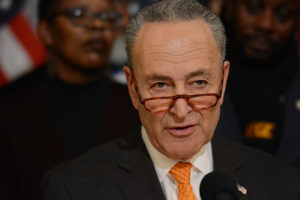
The Senate on Thursday evening passed a bill to lift the debt ceiling that also caps defense spending for the next two years, with the upper chamber's leadership offering commitment for the possibility of supplemental funding measures to add a defense boost. Majority Leader Chuck Schumer (D-N.Y.) offered a joint statement with Minority Leader Mitch McConnell (R-Ky.) ahead of the floor vote that noted the Fiscal Responsibility Act does not block the use of emergency spending measures to address national…

 By
By 











